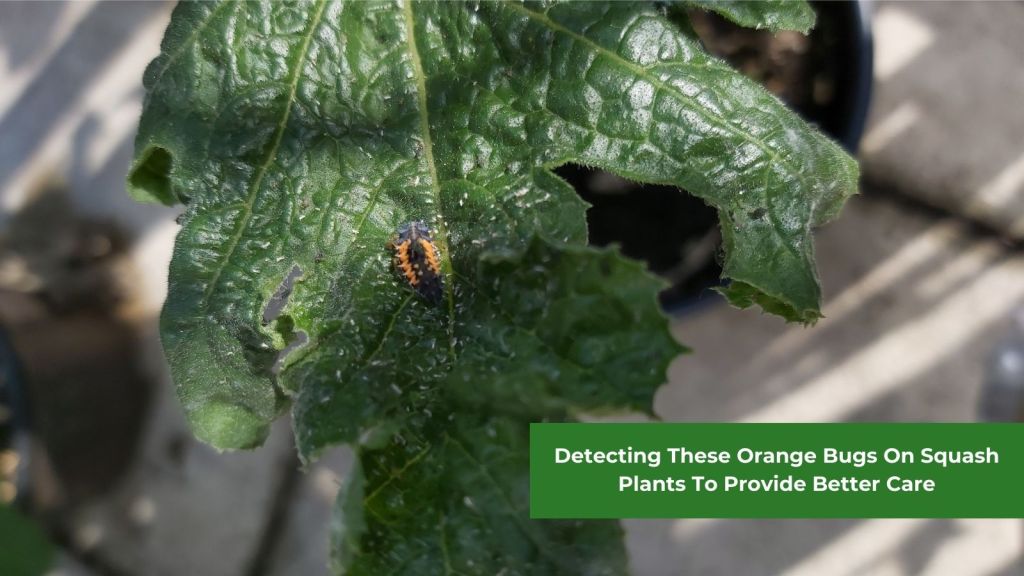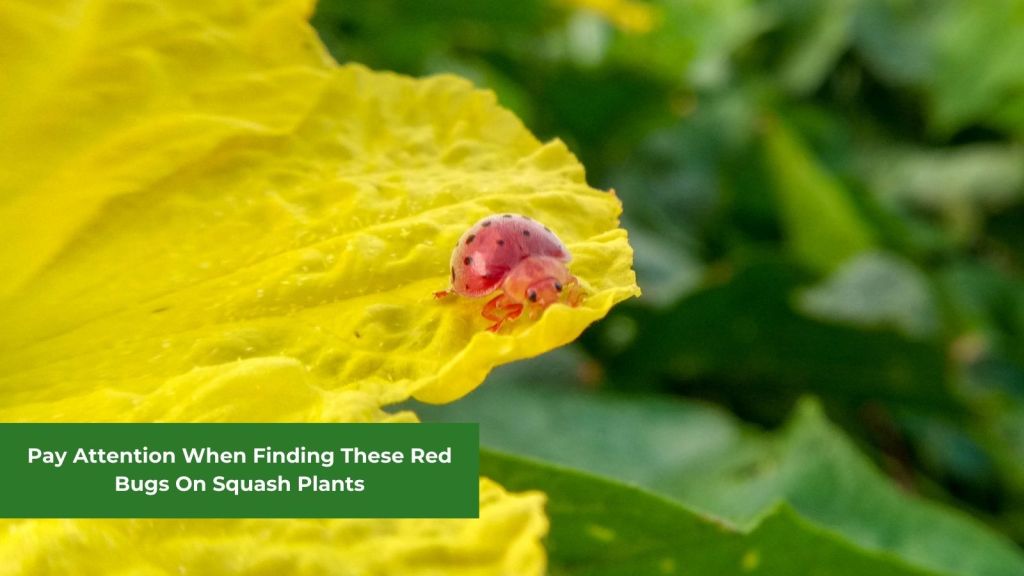It’s great when your garden is full of growing squash plants. But sometimes, you might notice something not so great – minor black bugs on your squash plants. Even though they’re tiny, they can cause problems for your garden. Along with articles about orange, red, or grey bugs, this article is about the black bugs on squash plants – what they are and how to care for your squash plants in this particular situation.
There are a few possibilities when you find black bugs on squash plants:
- Pickleworm Pupa
- Black Aphids
- Squash Bugs
Read on for more details about these bugs and how to prevent/ treat them.
#1. Pickleworm Pupa
You might come across some black bugs on your squash plants that seem a bit confusing, like these are pickleworm pupae. They’re the next stage after pickleworm caterpillars, like squash-eating caterpillars. As these caterpillars grow up, they become pupae, like a stage where they’re getting ready to become adult insects. These pupae might not directly hurt your plants, but they show that there could be more pickle worms around, and those can damage your squash. To handle this, you can use methods like covering your plants with cloth, using the proper sprays, and ensuring your garden is clean and healthy. This way, you can stop the pickle worms from causing too much trouble for your squash plants.
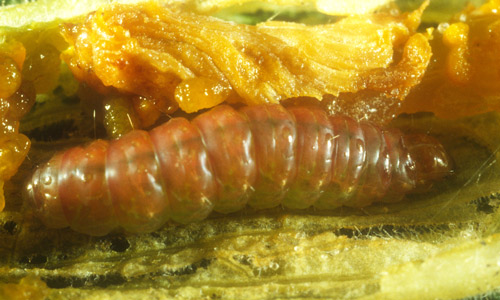
Reference: Pickleworm (Diaphania nitidalis) – Featured Creatures Entomology & Nematology | University Of Florida.
#2. Black Aphids
Black aphids can be a worrisome sight on your plants. These tiny, soft-bodied insects are a garden pest that feeds on plant sap. They gather in groups on plant stems and leaves, extracting sap and weakening the plants through feeding, causing damage. The black coloration of these aphids is due to a protective coating they produce, often making them appear as tiny black dots on leaves. While they might not be as common as other aphid types, their presence can still impact plant health and growth.
Read more: Tiny Black Eggs On Plant Leaves – Focus On Signs Of Damage.
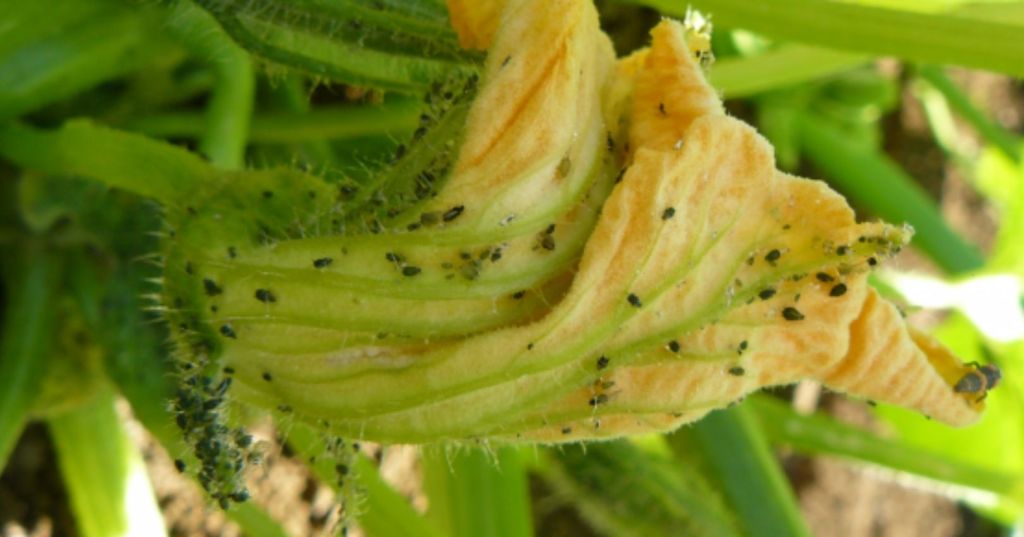
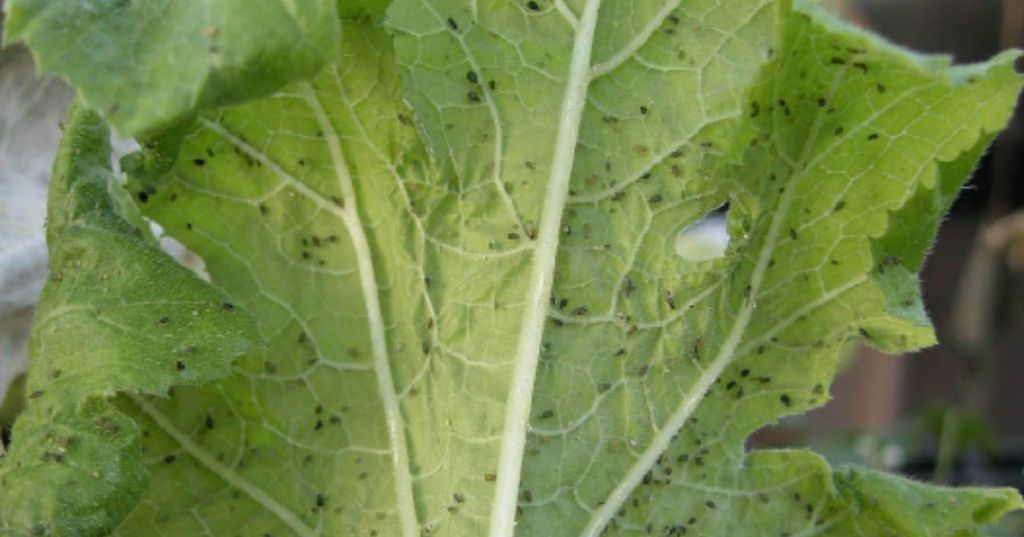
It’s essential to watch for them and take appropriate steps to manage their population, such as using insecticidal soap, neem oil or encouraging natural predators like ladybugs. By addressing black aphid infestations, you can help maintain the vitality of your plants and prevent potential damage.
Reference: Aphids in home yards and gardens | University Of Minnesota Extension.
Conclusion
So, even the tiniest details, like those little black bugs, matter in your garden. They might not seem important, but they can cause trouble for your squash plants. You can keep your garden healthy by learning about them and doing something. With this info in your toolkit, you’re all set to ensure your squash plants grow well and give you a great harvest. So, if you ever see those black bugs again, you know what to do!
Here are a few suggestions for your upcoming reads on GreenHouseCenter:
















![[GHC Featured Image] What To Do When Spotting These Black Bugs On Squash Plants black bugs on squash plants featured image](https://greenhousecenter.net/wp-content/uploads/2023/08/GHC-Featured-Image-What-To-Do-When-Spotting-These-Black-Bugs-On-Squash-Plants-696x392.jpg)
